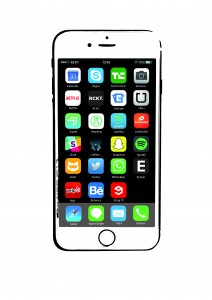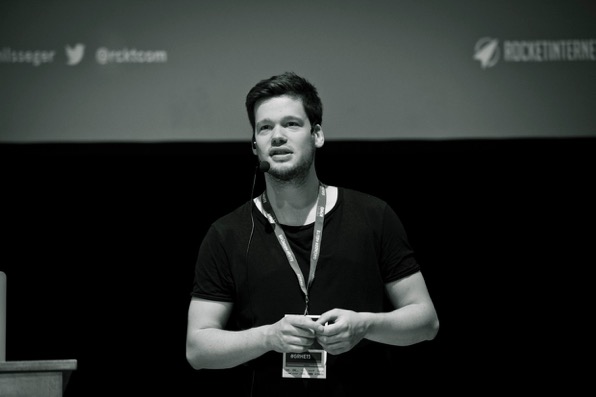There’s a lot of talk about “disruption” in Berlin. In our industry, it’s an unavoidable topic. Entrepreneurs from across the world have chosen Berlin as their homebase for the next so-called revolutionary product, technology or service, setting their sights on industries that look slow, vulnerable or even worse – old.
With on-demand technologies I’m able to manage everything from dinner to my insurance with just a few smartphone taps. These technological advances have certainly made life much easier. Yet when we talk about Industry 4.0, we no longer see the same level of innovation and competitive verve. I’m talking about the optimisation of manufacturing, including the latest technology and digital practices. That’s an industry we’re quite proud of here in Germany; it’s ingrained in our national fiber.
According to Cisco, four of 10 established businesses will be replaced in the market by technological developments. Only 25 percent of businesses view their digitisation efforts as “proactive”.
We think to ourselves, let’s sit tight and see how this trend develops. But there’s little sense in sticking our heads in the sand, or even worse, diverting valuable resources to stop a trend that’s already gained too much momentum.
“Once disruption is underway, there really is no stopping it.” That’s what consultant and former XING CEO and Stefan Gross-Selbeck prophesied last year in his TedxBerlin talk on digital change.
We’ve seen significant disruption within industries like taxi service (Uber), hotels (Airbnb) and fundraising (Kickstarter), even dating (Tinder). But why has the industry that’s helped propel Germany to a world-leading economy neglected this development?

The management consulting firm McKinsey predicts that by 2025 the manufacturing industry will be fully transformed by digital technologies. These developments include Big Data, virtual/augmented reality and advanced robotics.
Part of what we do at RCKT. is helping companies not only better understand the digital developments taking place in their industries, but how they can use these technologies to their advantage.
As Stefan Gross-Selbeck noted, it’s never been easier for companies to create a digital product. Companies who place their trust in the status quo put themselves at risk. Nothing was stopping the taxi industry in the USA from building out its own mobile-app network or optimizing its payment system. Taxi companies could have invested money, for example, in algorithms that prioritized cabs in relation to their location to the customer.
Or we can take an example from football. I followed the story of FC Midtjyllands in the Danish Superliga with a lot of interest, seeing as how the organisation has completely transformed its corporate thinking based on analytics, mathematical modelling and valuing specific KPIs (key performance indicators) over the club’s ranking in the table.
Or look at the auto industry, one of the hallmarks of German innovation. McKinsey pointed to the BMW i3 plant in Leipzig as an example of an Industry 4.0 best practice. Robots are implemented at all stages of production, and the process is managed centrally. Everything streamlined, modern and high-tech.
At RCKT., we are working to create digital best practices for our clients. That’s what dexperty, Messe Frankfurt’s department for digital business, asked for when we met with them. Since our partnership began we’ve worked closely with our friends in Frankfurt, putting together branding workshops, hosting them here in Berlin and creating strategies to help them make the exhibition experience fully digital.
Now we just need to see how we can scale these transformations across Germany. Our chancellor has made this an important part of her political platform, in conjunction with the Bundeswirtschaftsministerium. But it’s also up to the industries here to recognize where digital is headed.
